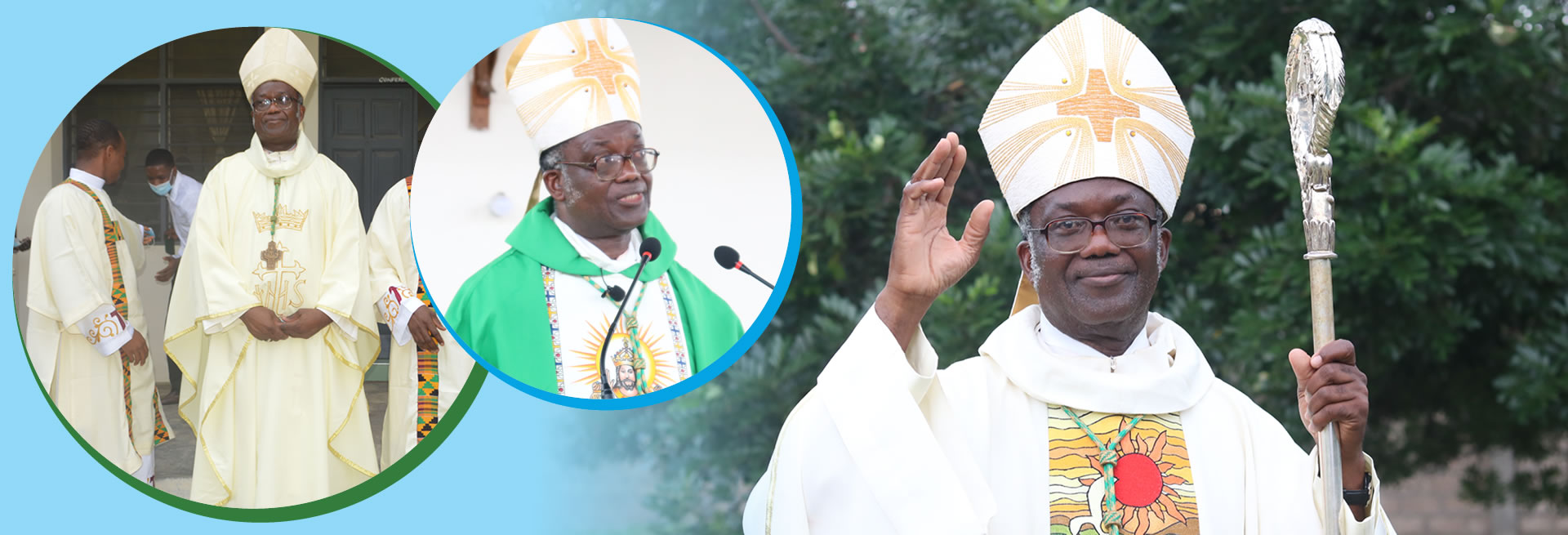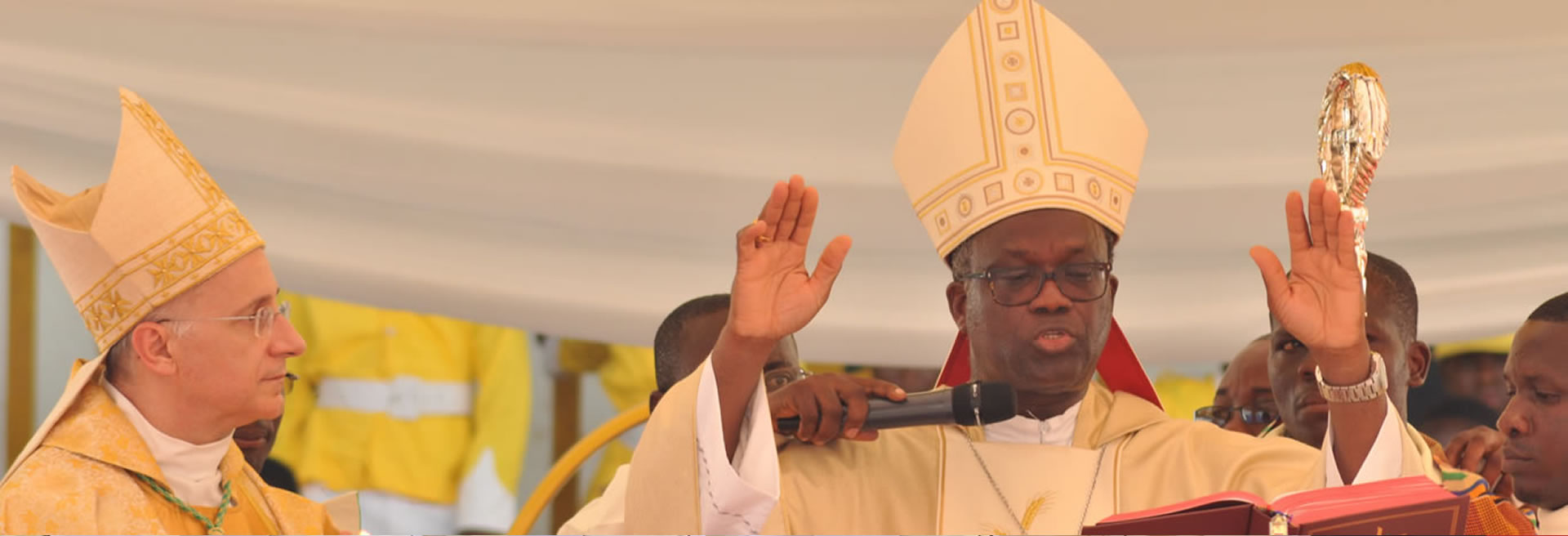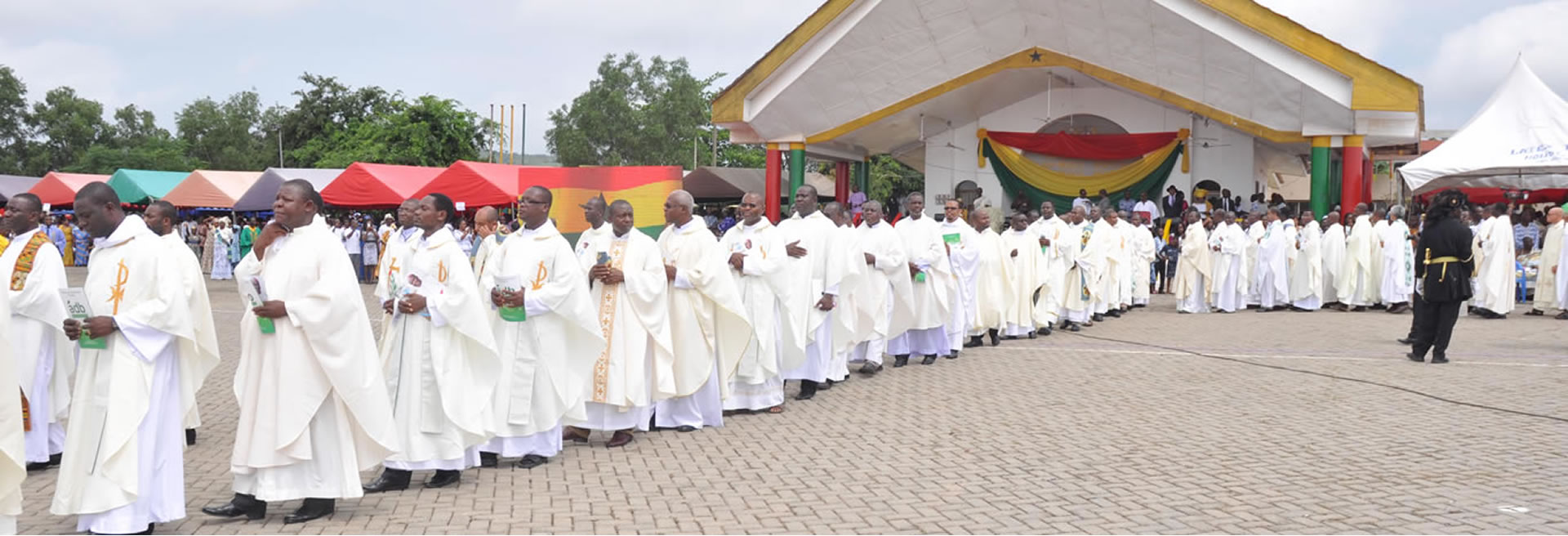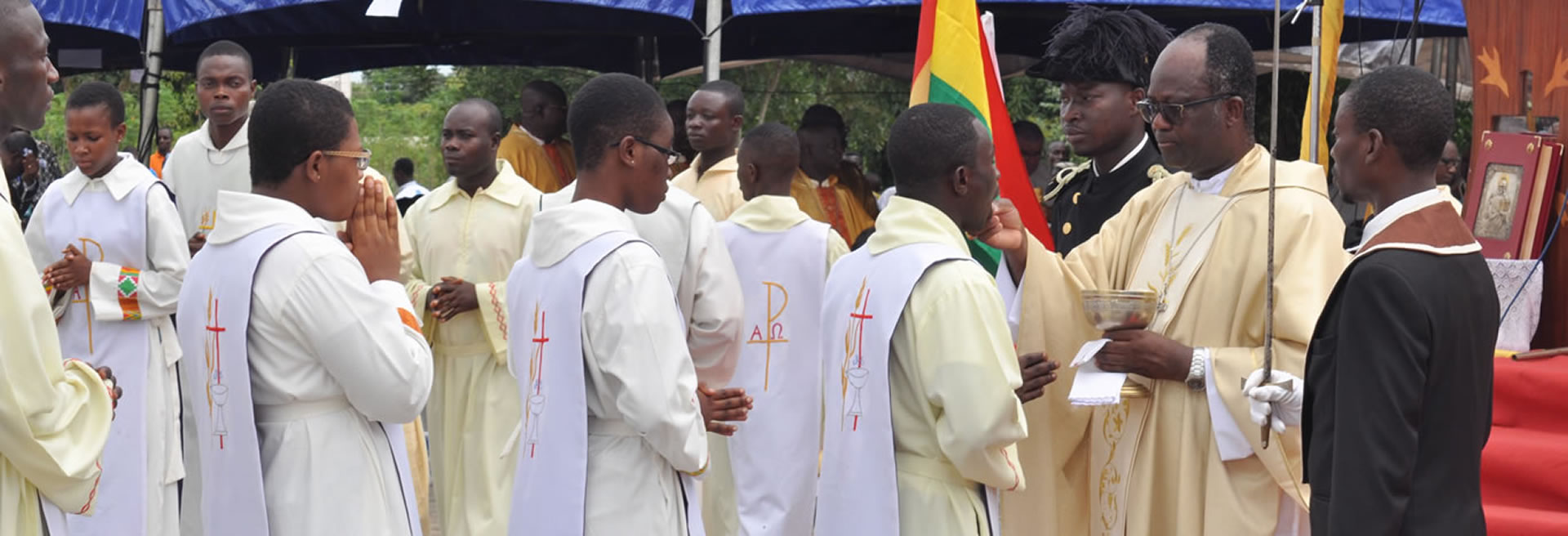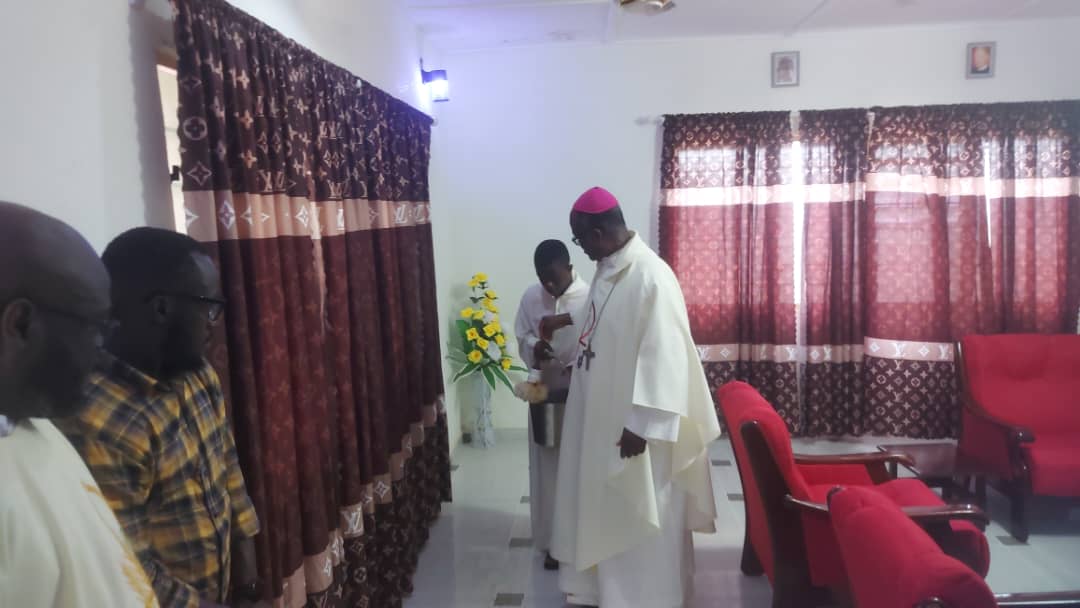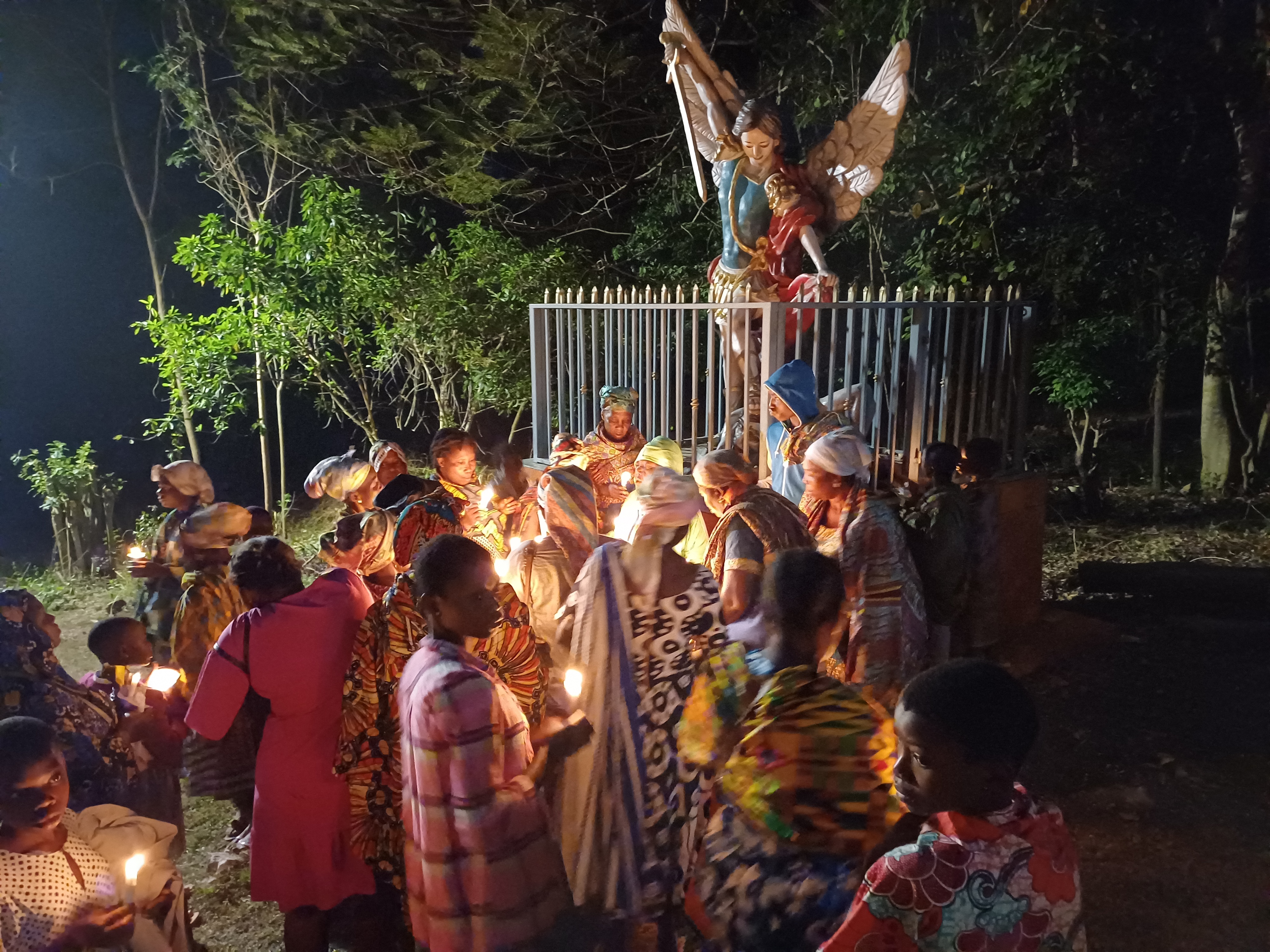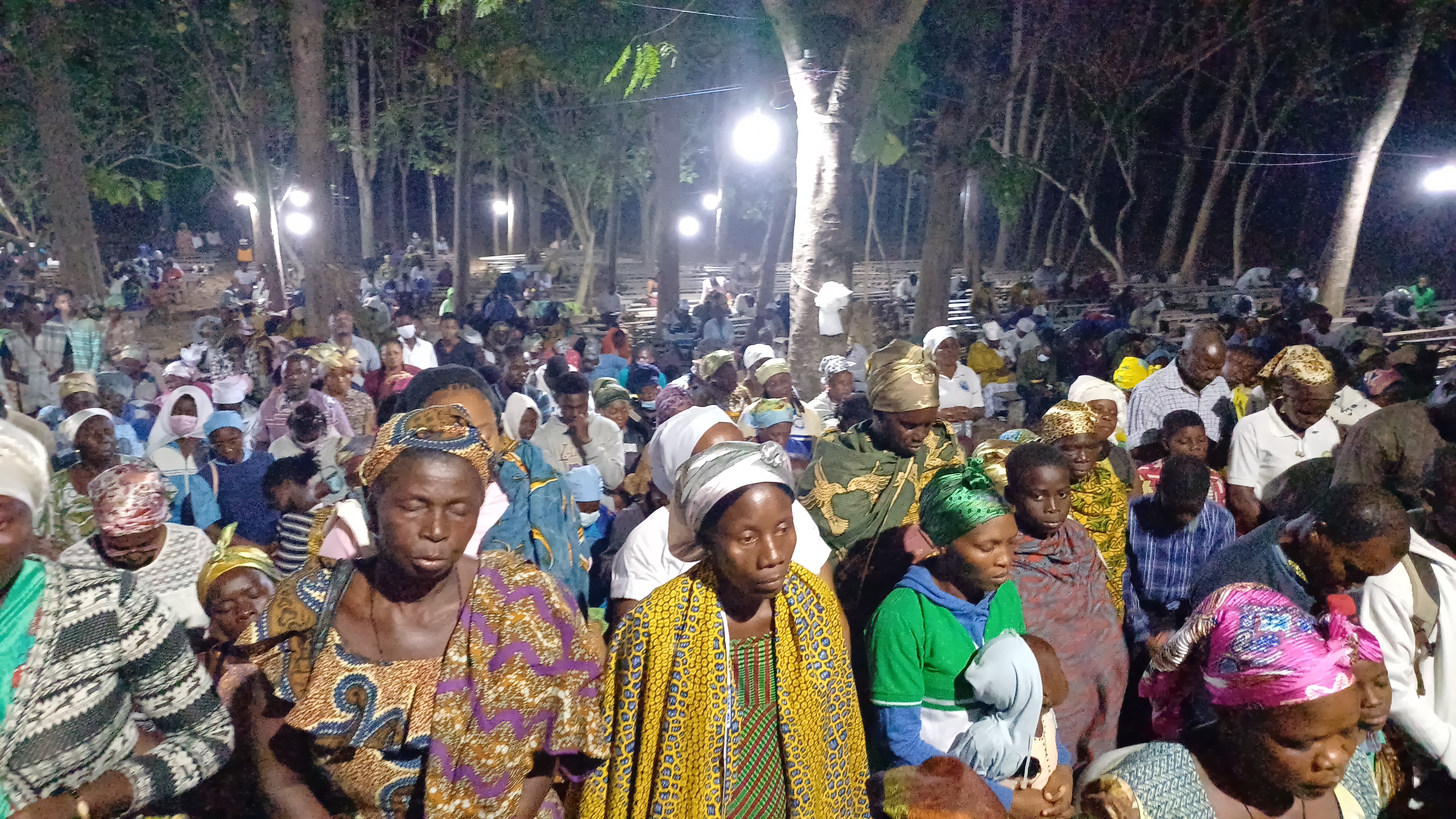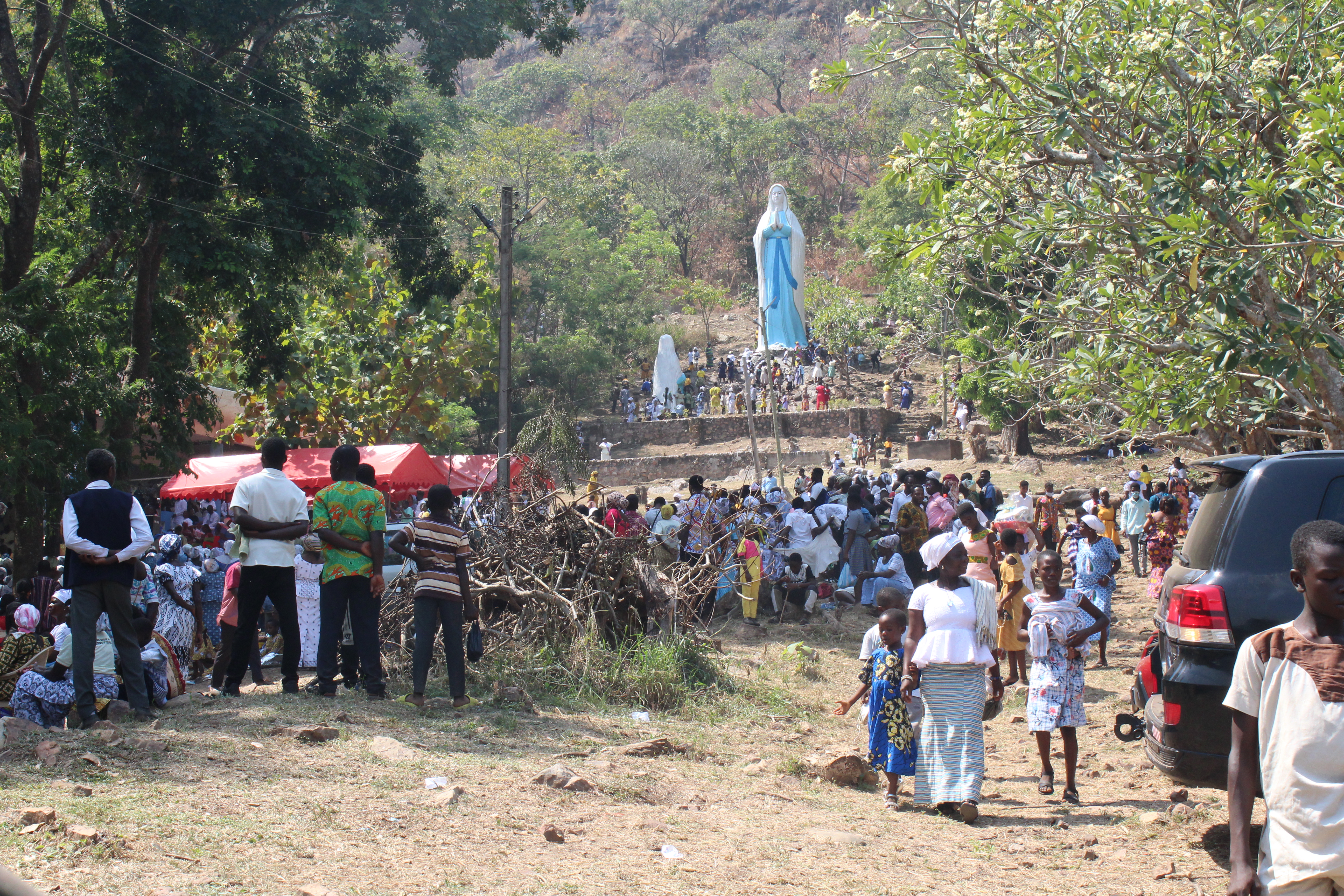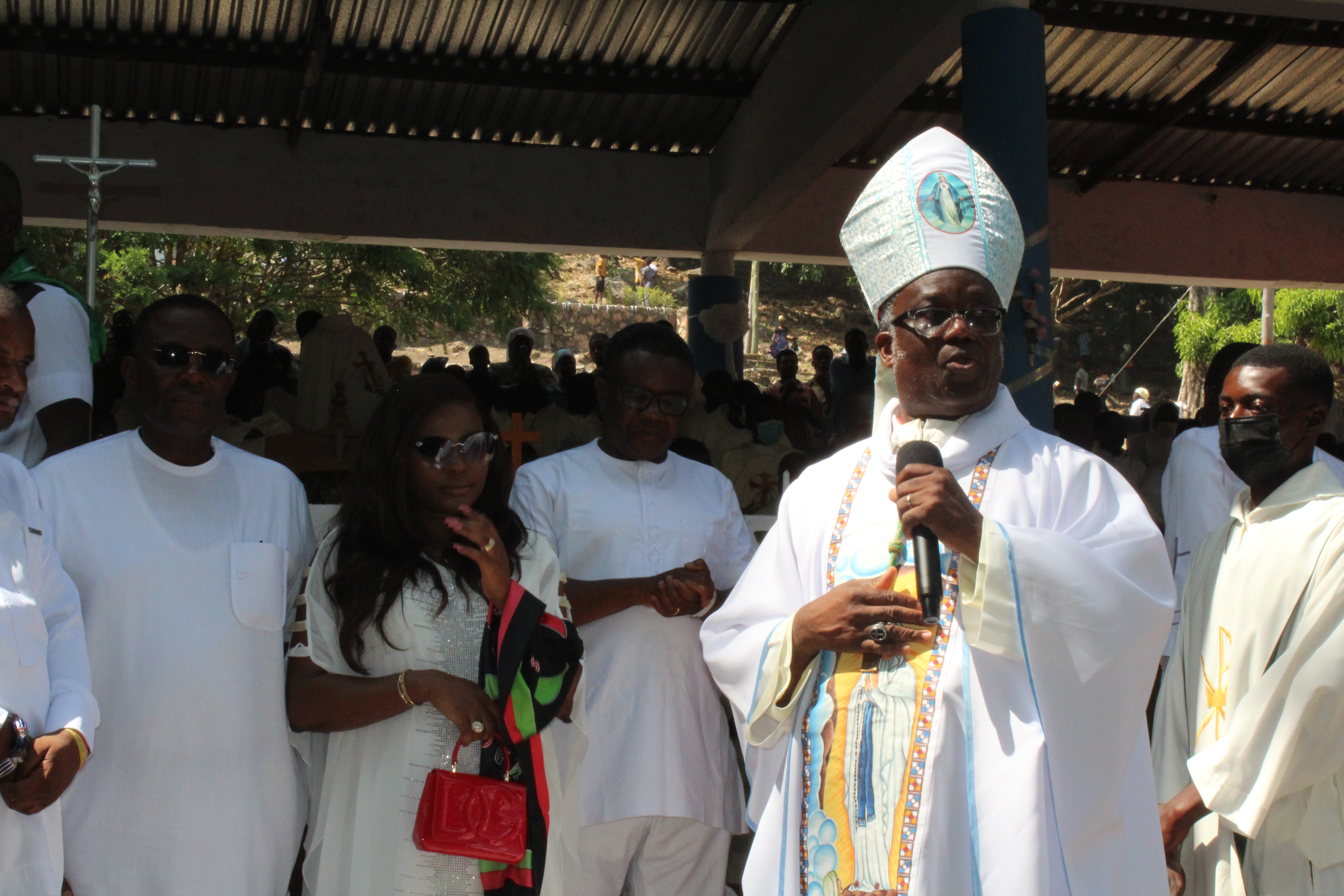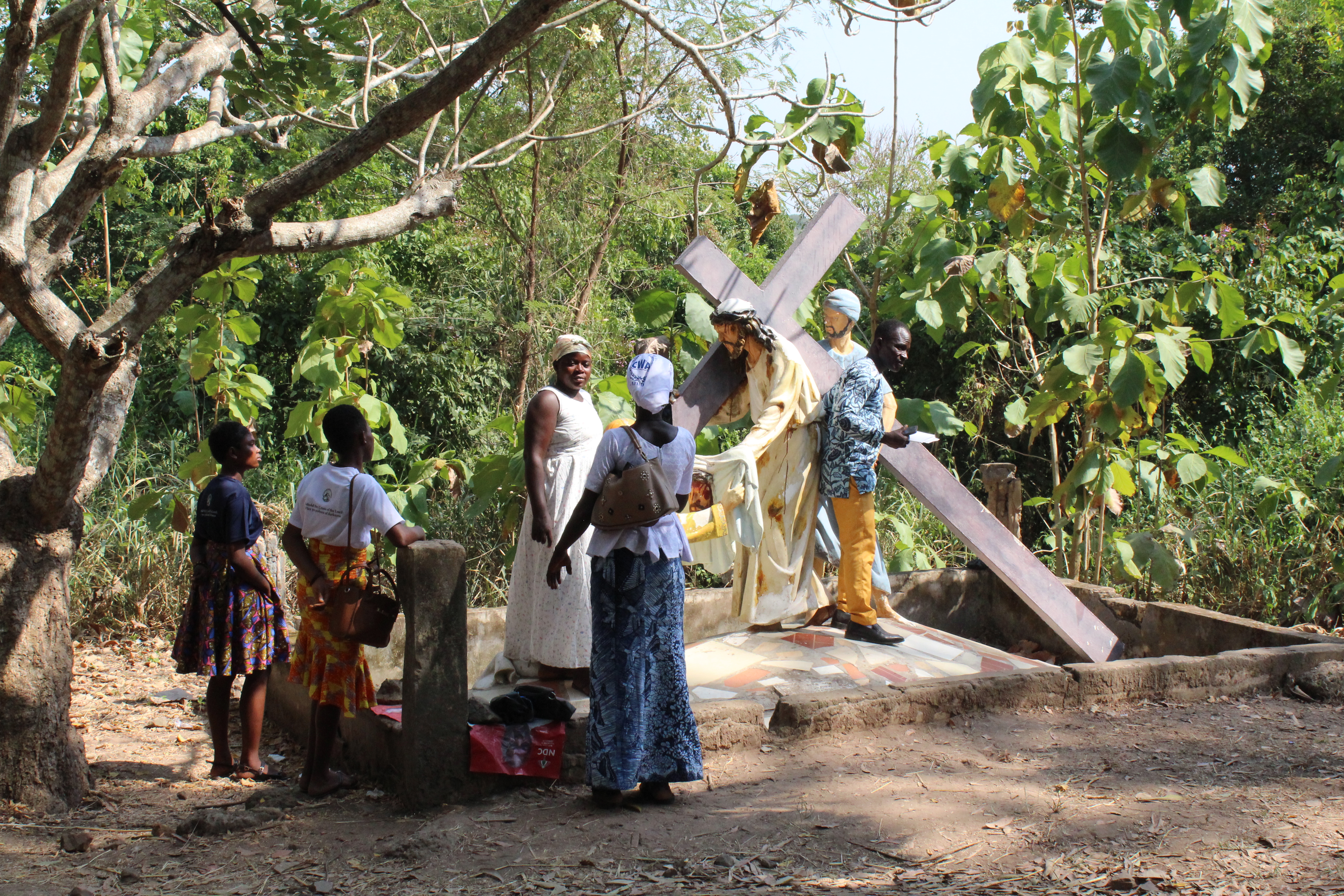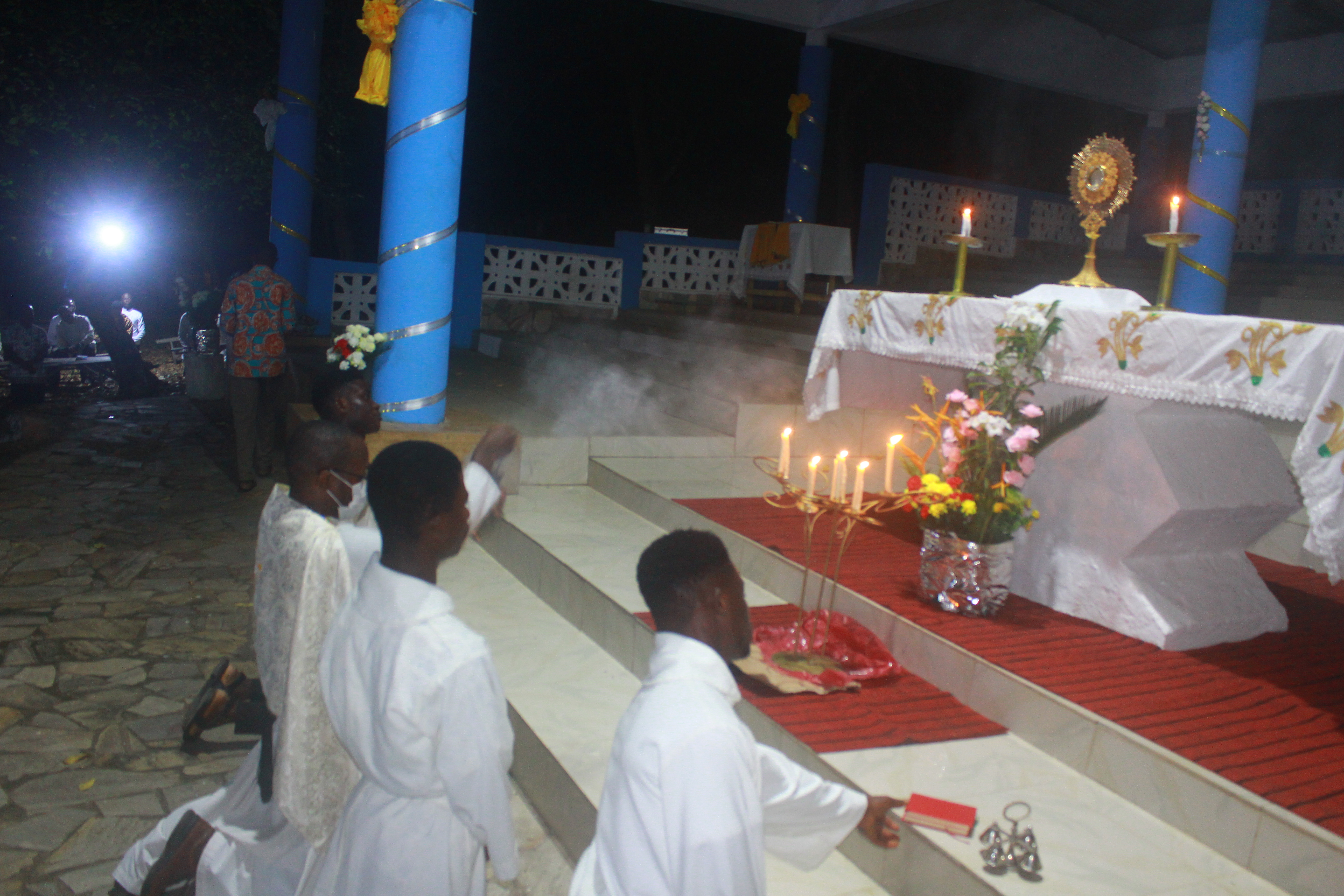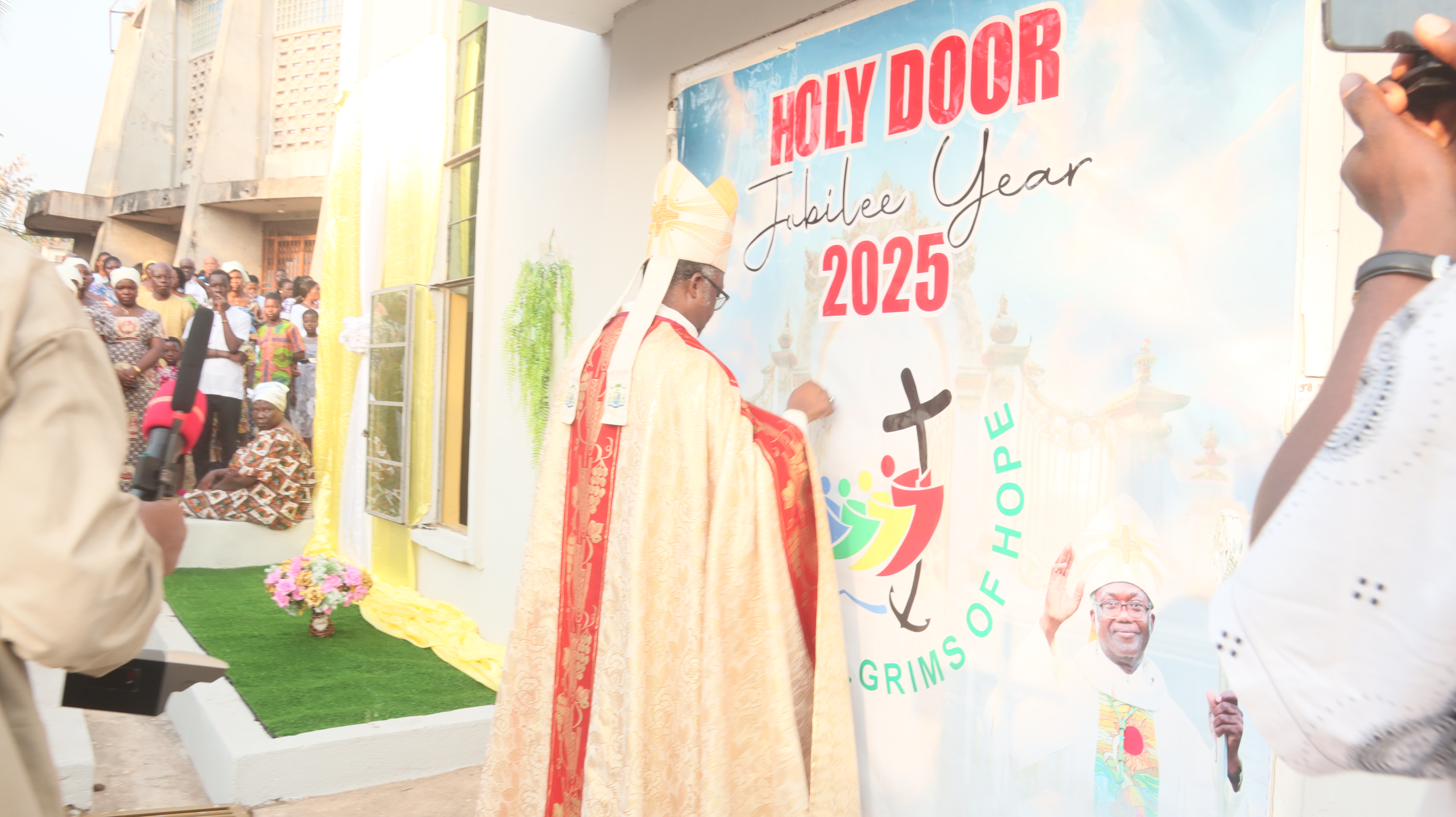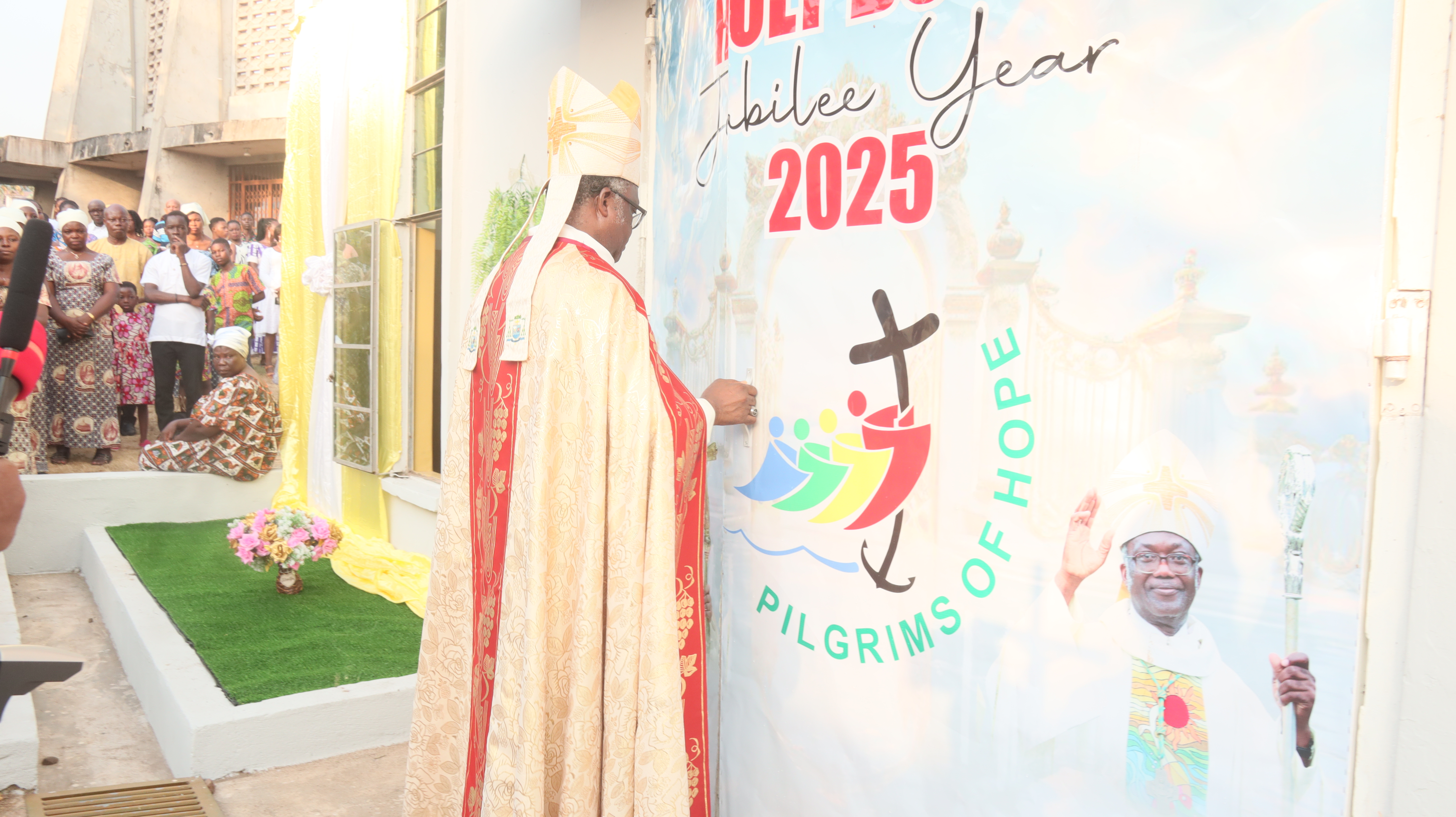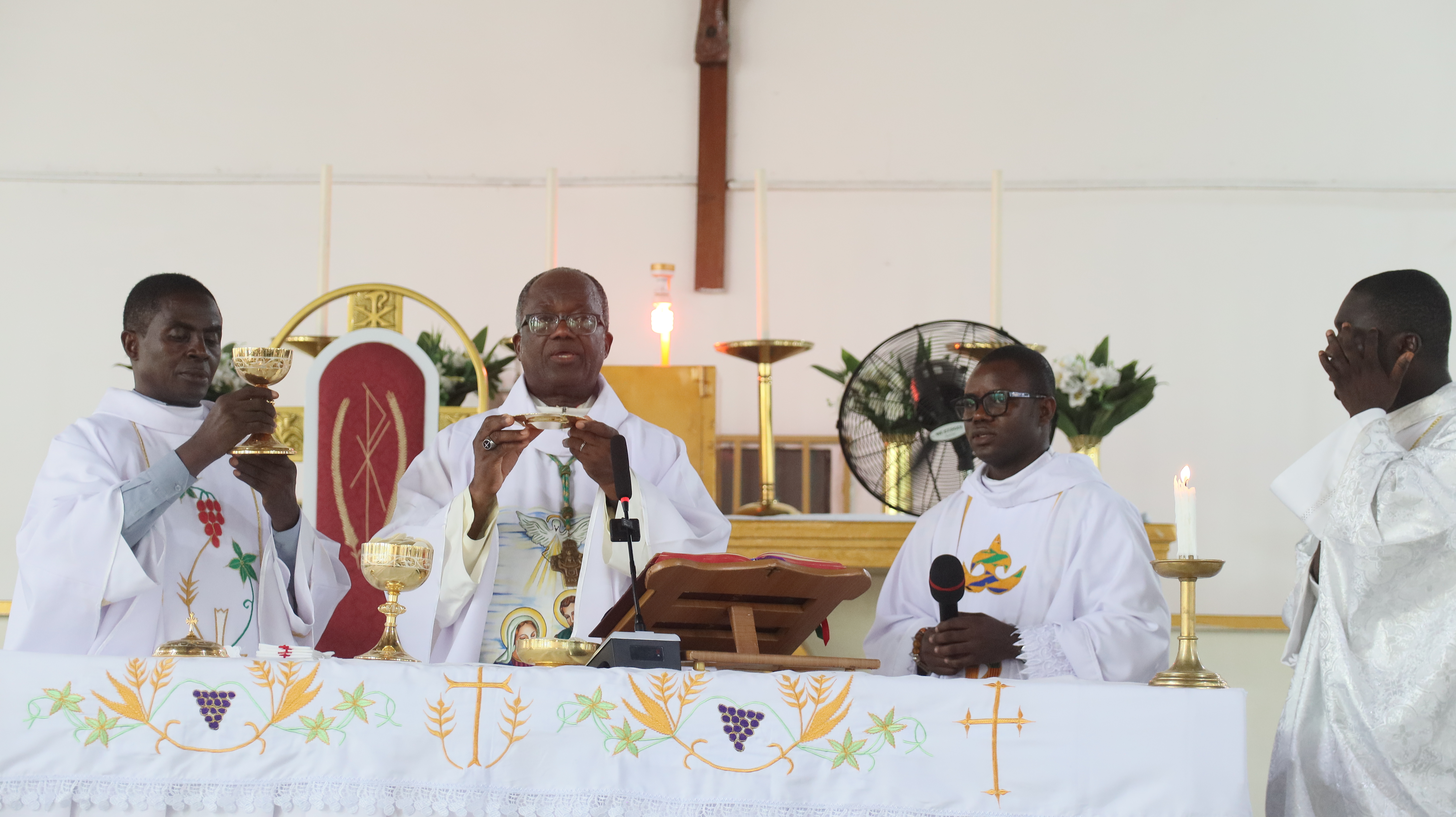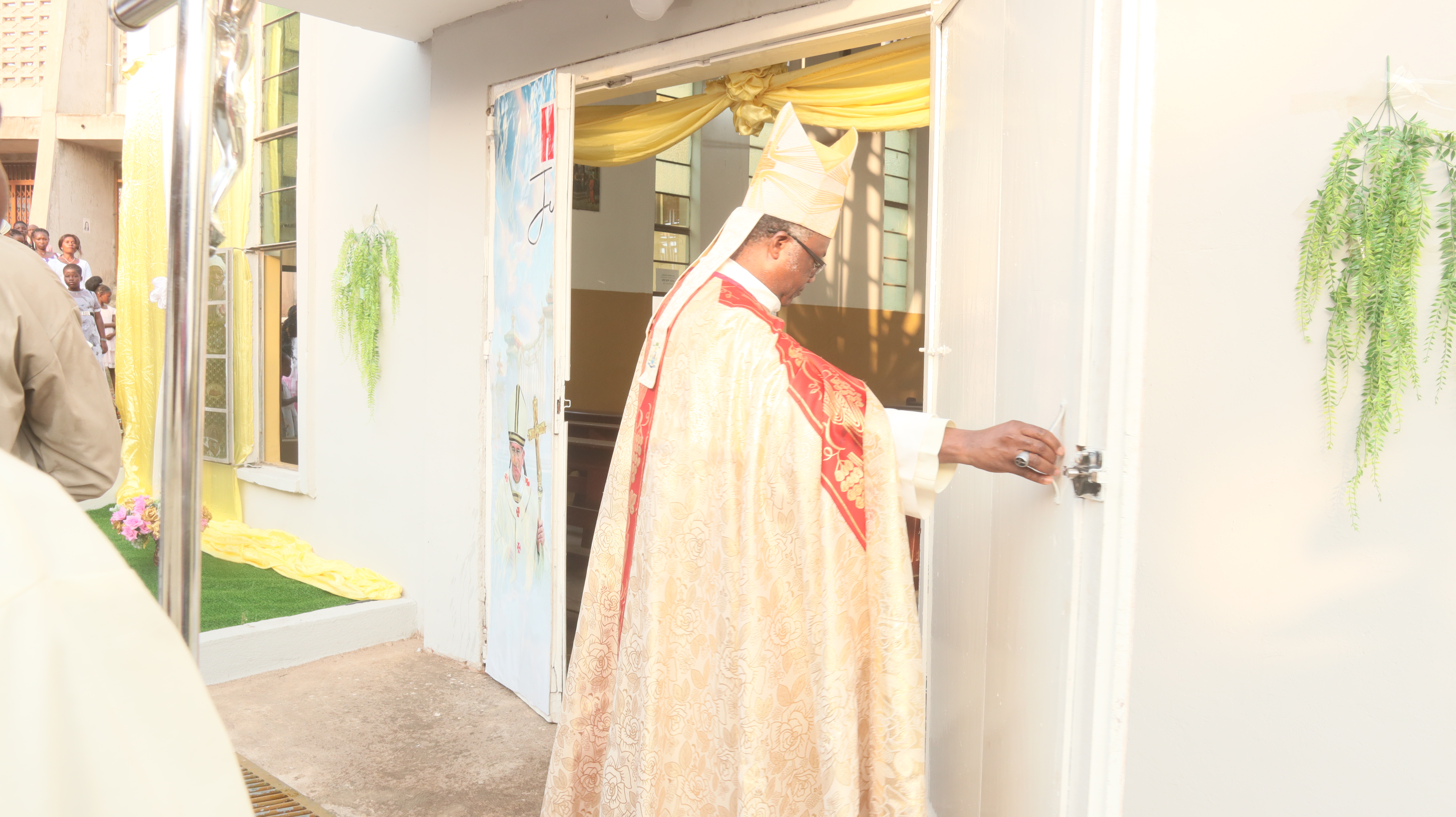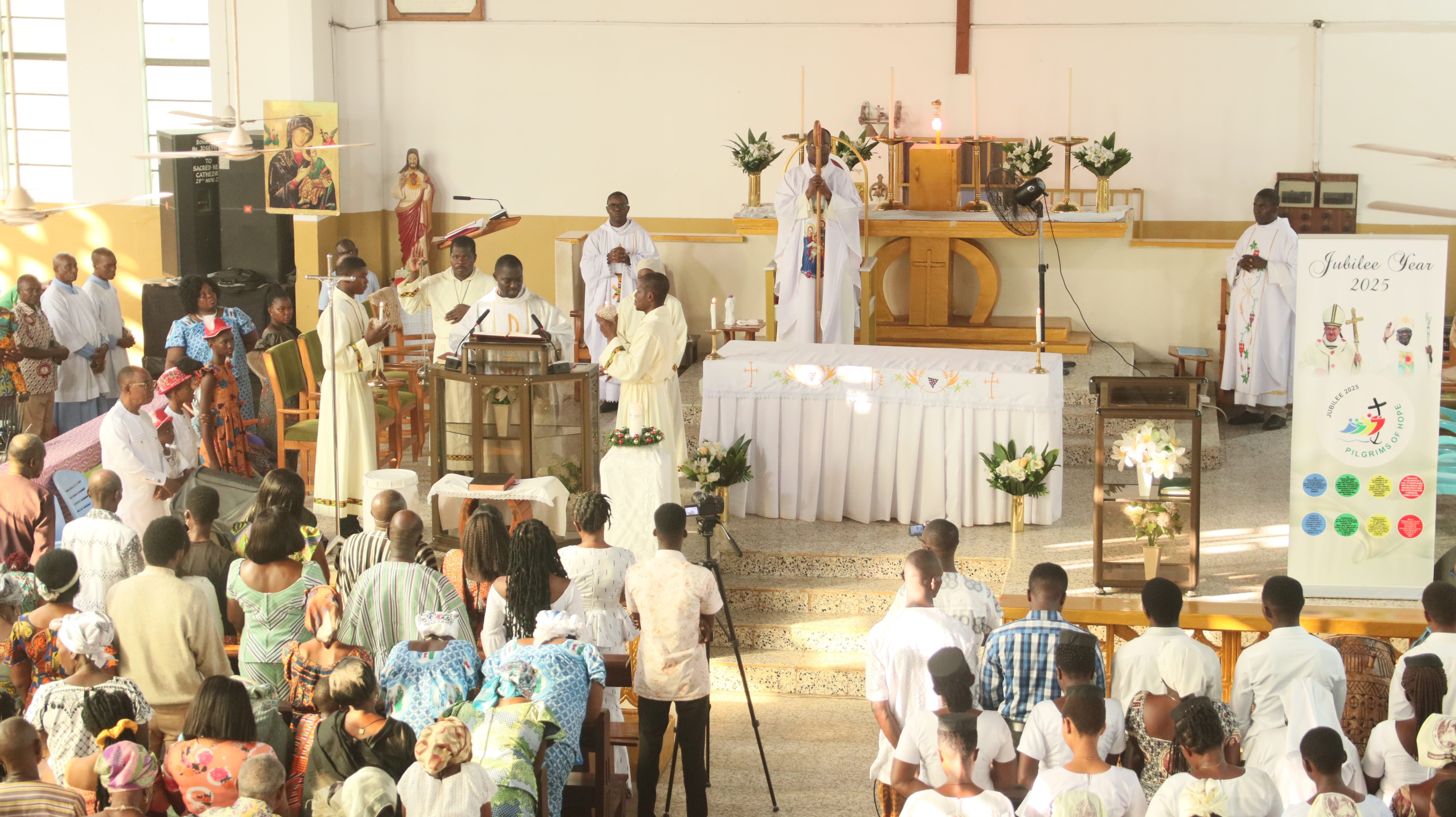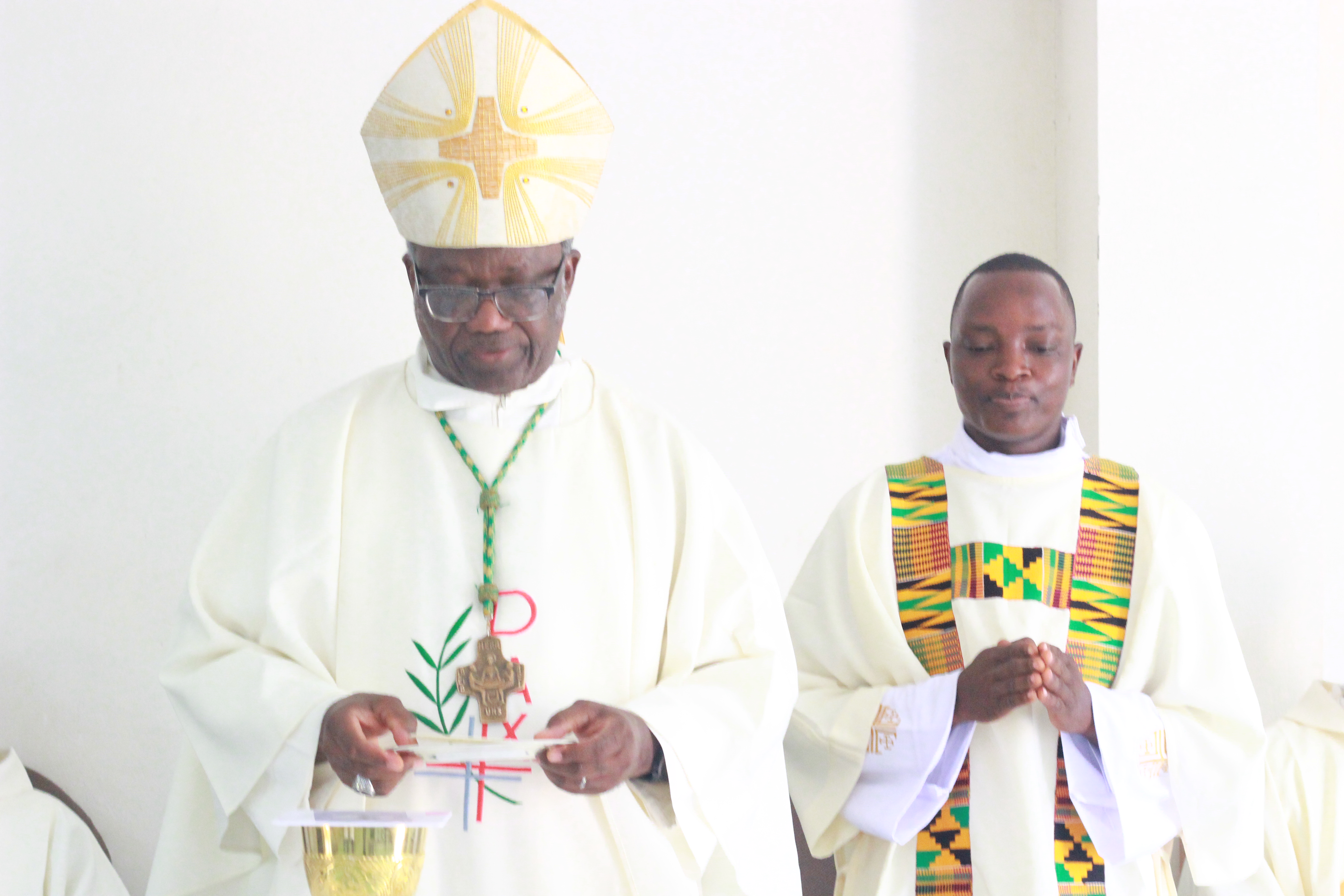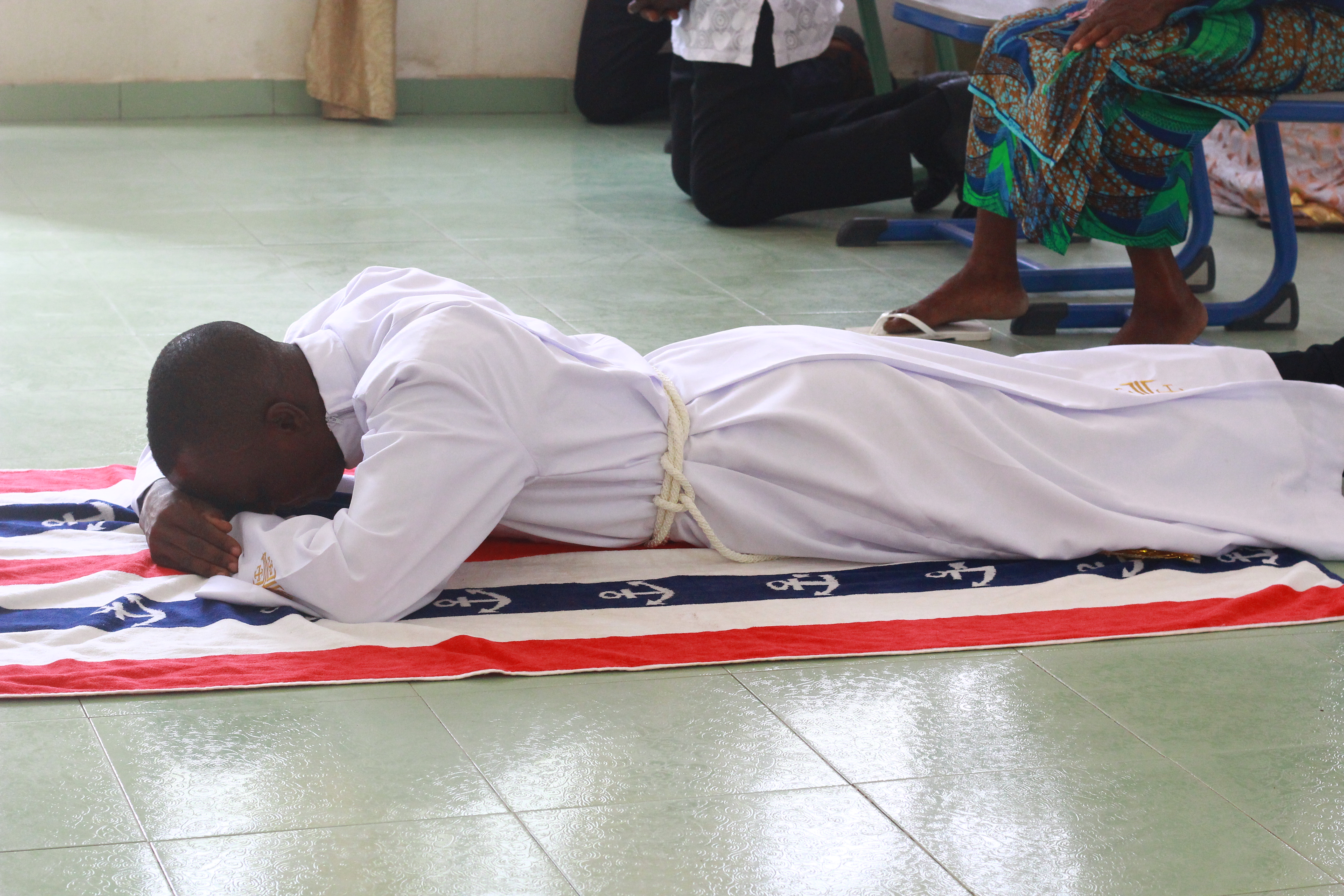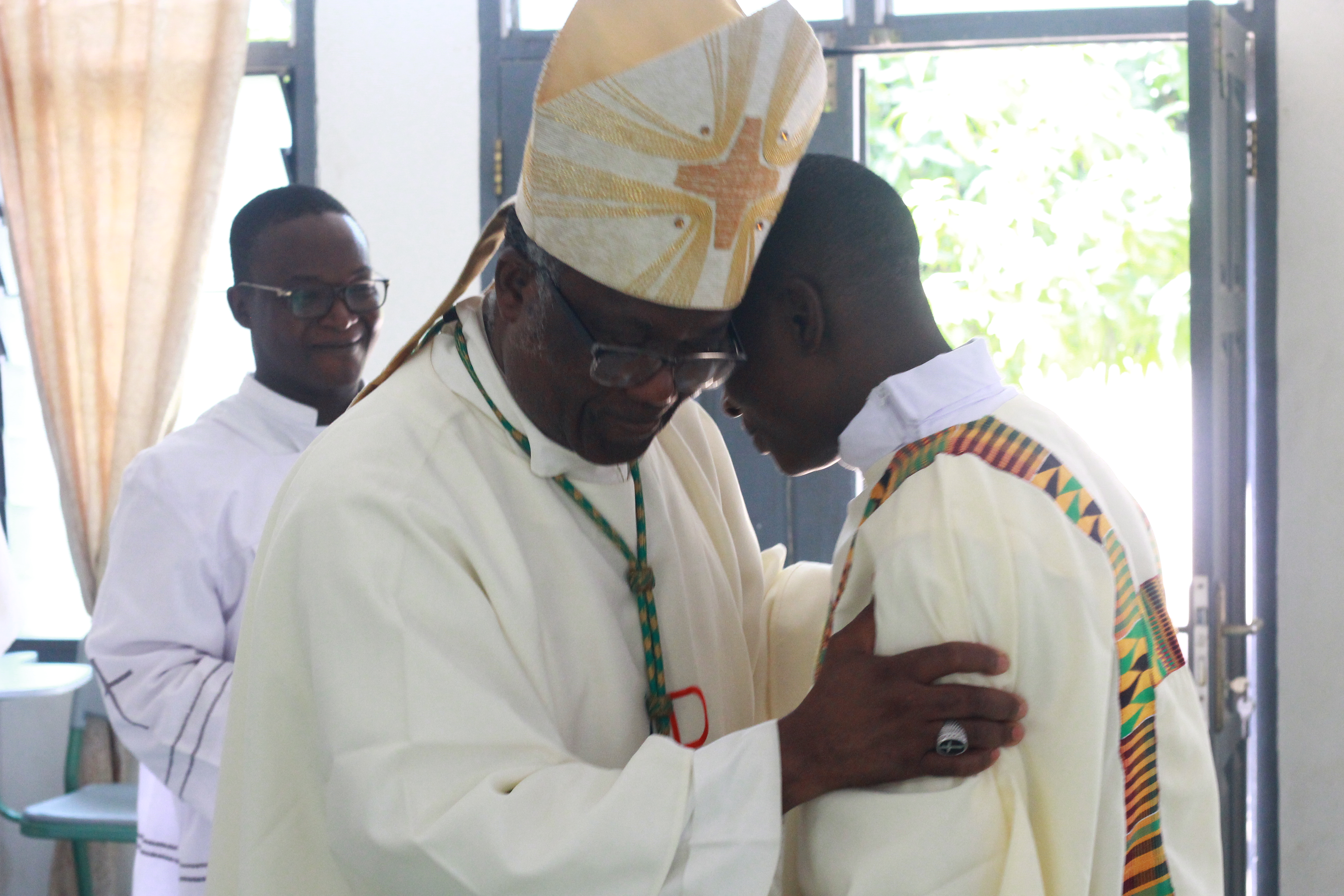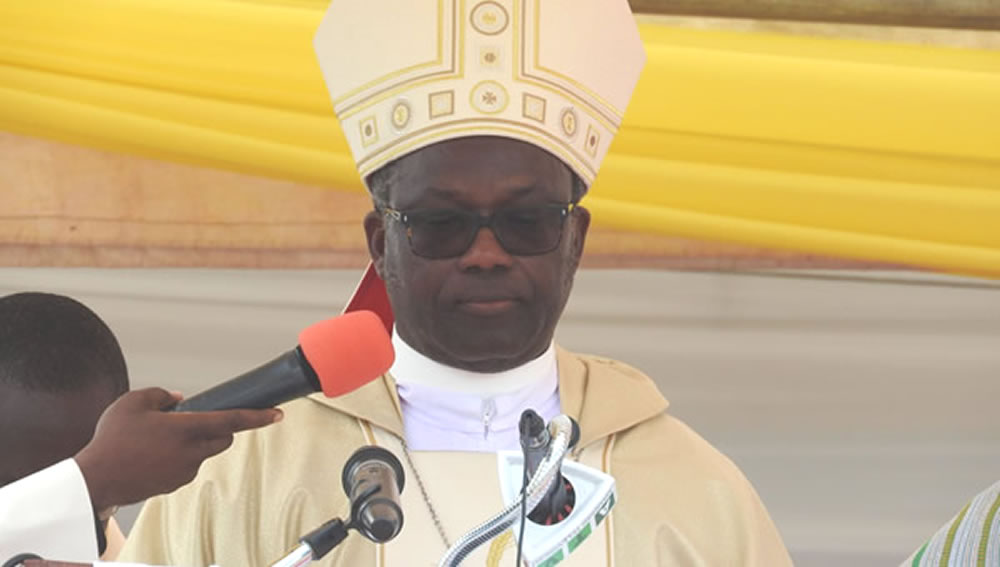
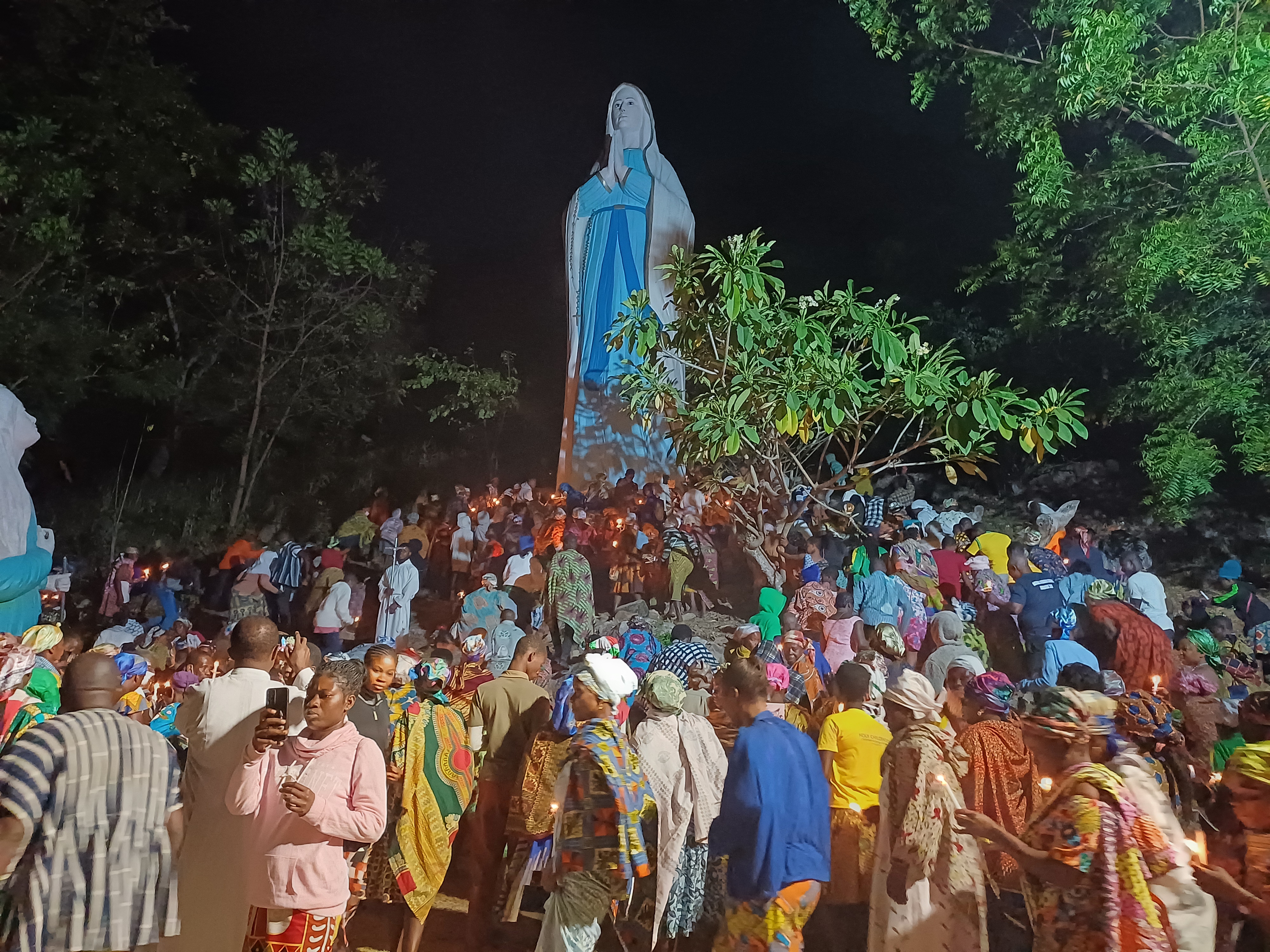
Ho Diocese held End-of-year pilgrimage
The Catholic Diocese of Ho held its 2024 end-of-year Diocesan pilgrimage from Saturday 14th to Sunday, December 15, at the Our Lady of Lourdes Grotto in Kpando Agbenoxoe. The pilgrimage brought together clergy, religious, and lay faithful in prayer and thanksgiving for peaceful elections and divine blessings bestowed on Ghana.
On Saturday the vicar general, Very Rev. Fr Walter Agbetoh presided over the arrival mass thanking God for the traveling mercies. The mass was followed by a teaching on Our Mother Mary by Very Rev. Fr Isaac Benuyena.
Immediately after Teaching, there was a candlelight procession to the feet of Mary which was concluded by exposition of the Holy Eucharist and Adoration.
Most Reverend Emmanuel Kofi Fianu S.V.D, Catholic Bishop of Ho and Vice President of the Ghana Catholic Bishop's Conference, presided over the Holy Mass. In his Homily, the bishop stated that the celebration of the Feast of the Immaculate Conception of Mary recalls the Catholic Church's teaching that affirms Mary was preserved from all stains of original sin by a singular divine privilege, in view of the merits of Christ's death.
Bishop Fianu emphasized that every Church teaching is of great importance to all Christ’s faithful. The principal message of the Feast of the Immaculate Conception concerns the effect of sin on humanity and divine redemption through Christ and Mary. "The world has lost its sense of direction due to sin and constantly needs redemption, attainable only by rejecting sin. Unfortunately, evil forces lead humanity astray by attractively presenting sin's products”, he added sharply.
Bishop Fianu noted that sin, in forms like corruption, stealing, and immorality, is prevalent today. Many justify their actions, saying they are normal because everyone else does them.
The Vice President of the Ghana Catholic Bishop's Conference strongly condemned the molestation of three Franciscan Capuchin priests at St. Michael Parish, Kpassa, in the Jasikan Diocese. The priests were wrongly accused of stealing DRIP equipment they had hired from the Nkwanta South Municipal Assembly to clear land for a Formation House for seminarians at Chaiso.
Some of the parliamentary candidates elected in the just-ended elections were also there to show appreciation to God and seek God’s wisdom and direction to serve the people entrusted with this responsibility.
Before praying for them, Bishop Fianu urged all faithful to pray for elected Catholic members of parliament, so that they may live out their faith in public service.
(C) DEPSOCOM

